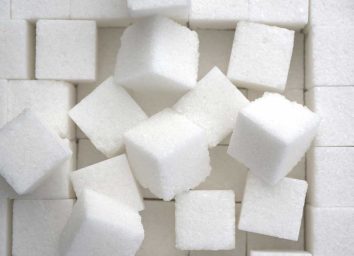22 Diet Changes for a Stronger Heart After 40
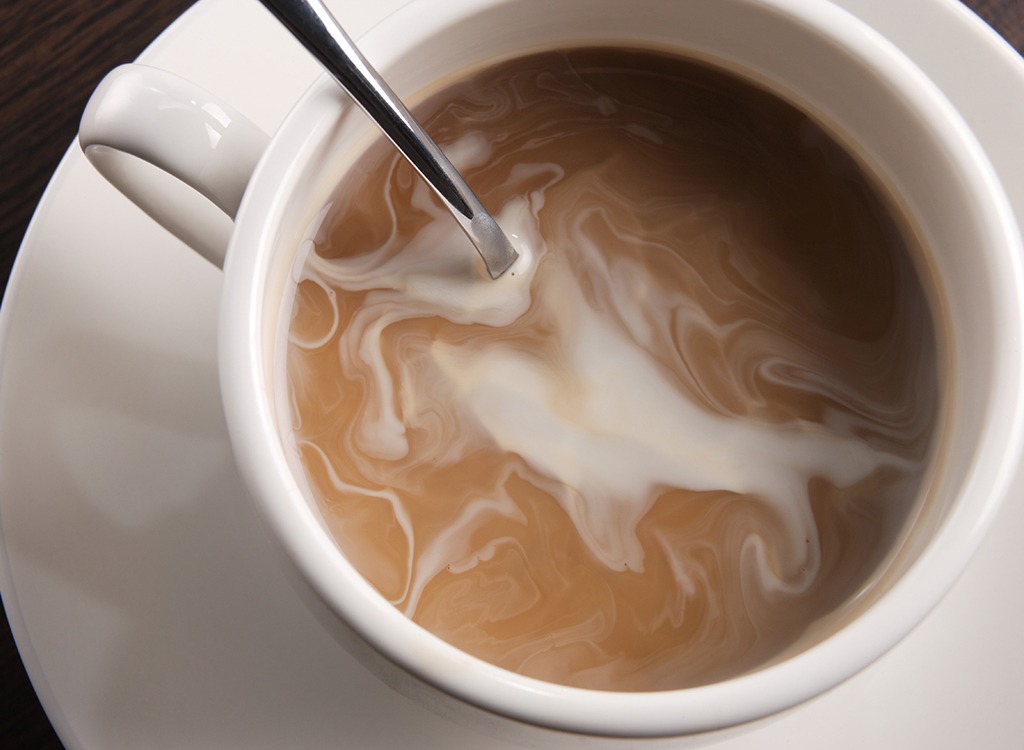
If you love your heart, you'll start shopping smart. Otherwise, you're putting your body at risk of diabetes and high cholesterol by ignoring this organ—and it's not as if your risk isn't sky-high already. According to the Center for Disease Control and Prevention, 1 in every 4 deaths in the United States has heart disease to blame.
So don't be a statistic; beat the odds and set yourself up for success with a disease-fighting diet. Heart health is made in the kitchen and in the gym, but we're beginning with the basics. Here are the foods that don't belong in your grocery cart, followed by those that definitely do. And while you're skirting certain aisles at the store, you might as well avoid these 14 Inflammatory Foods Making You Fat while you're at it.
Avoid At All Costs

If your heart could talk, it would tell you to stay far away from these foods. Whether it's due to their sodium, sugar, or fat content, you'd be better off setting your sights elsewhere.
Flavored Yogurt
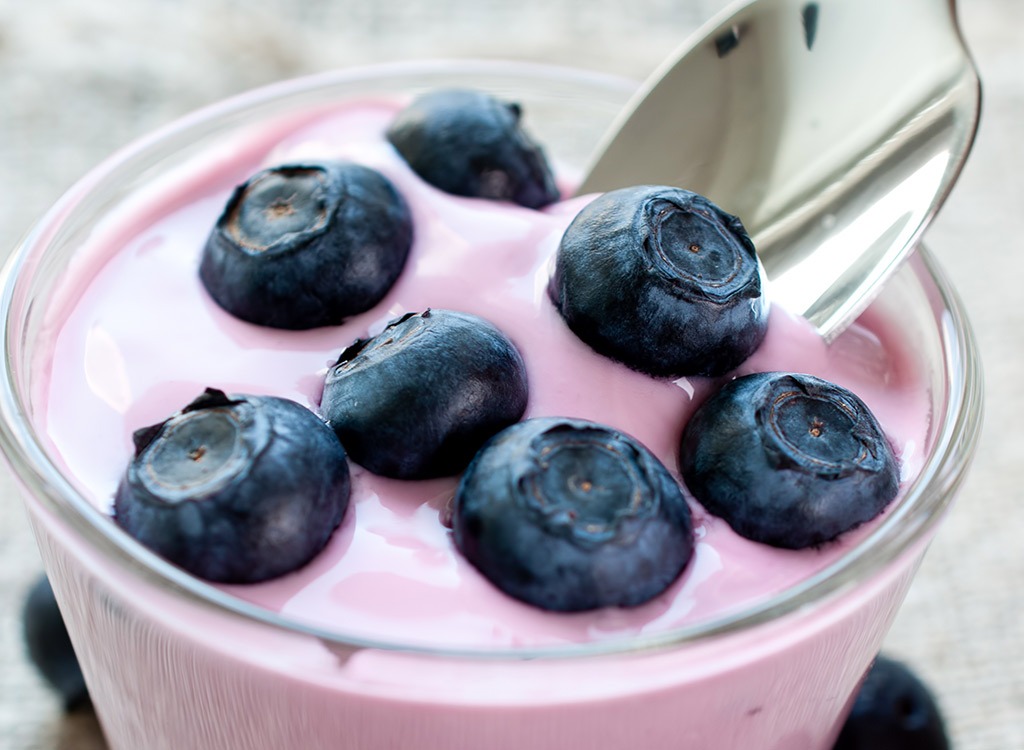
You may have heard that yogurt is good for you, and it is—sometimes. In many cases, it's not. Added sugars in flavored yogurts can make a fruity breakfast choice an insulin-spiking sugar bomb. This leads to inflammation and can be the first step to hazardous heart problems. "Anything that has glucose, fructose or any sort of sugar is bad for your heart as it increases inflammation and inflammation begets cardiovascular disease," Adam Splaver, MD, clinical cardiologist and co-founder of NanoHealthAssociates explains. Yoplait's Thick and Creamy Peaches 'N Cream flavor, for instance, has 28 grams of the sweet stuff. With four times more sugar than protein, there isn't enough muscle-building goodness in there to combat this. Stick to our list of 25 Best Yogurts For Weight Loss instead.
Blended Coffee
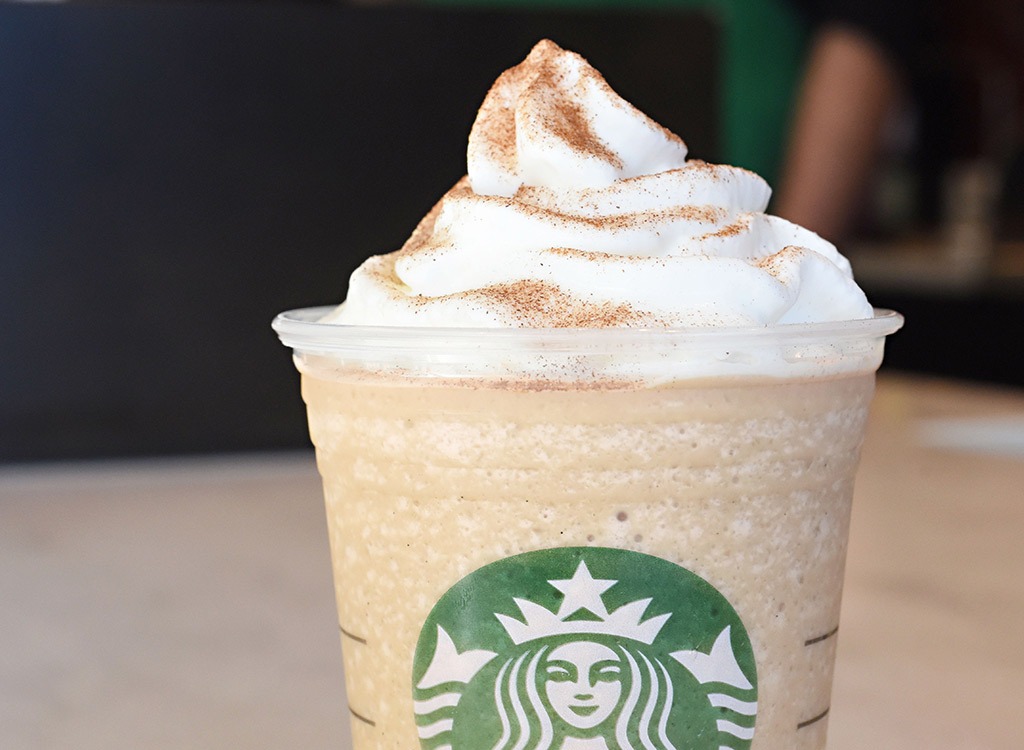
Ordering a fancy coffee drink is the last thing you should do if you're actively looking to avoid heart disease. But even if you skip a trip to Starbucks, bottled blended drinks have made their way to a grocery store near you. These glass-encased beverages may be missing whipped cream and caramel drizzle, but don't be fooled—they're far from innocent. They're overloaded on sugar that'll boost your blood sugar levels and caffeine that'll boost your blood pressure. Gold Peak's Salted Caramel Cold Brew, for example, has 53 grams of the sweet stuff. That's a dangerous combination as far as your heart is concerned since weight gain from excess sugar can strain the muscle and a high blood pressure can increase your hypertension risk.
Steak
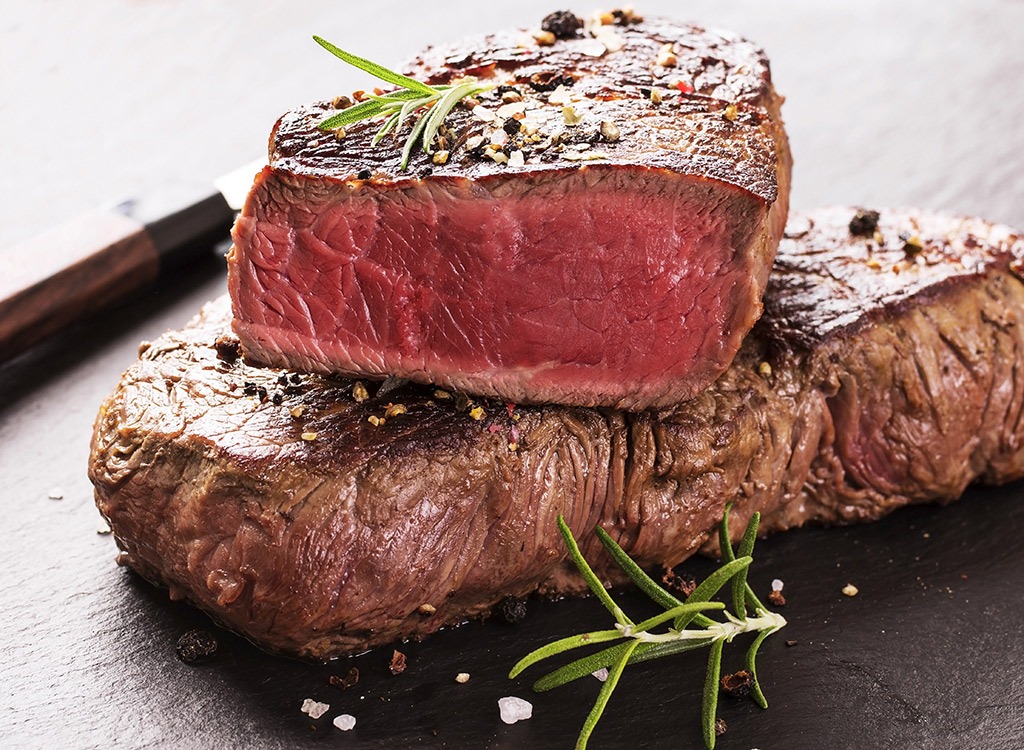
Pick your cut wisely. Fatty meat choices like ribeyes, T-bones, and New York strips are guaranteed waist wideners. Do better by your bod and your heart by choosing to chomp on healthier cuts. Think grass-fed top sirloin or London broil since they're low in saturated fat. A study in the Asia Pacific Journal of Clinical Nutrition found that leaner meats can not only reduce cholesterol, but also give you a boost of heart-strengthening omega-3 fatty acids.
Canned Vegetables
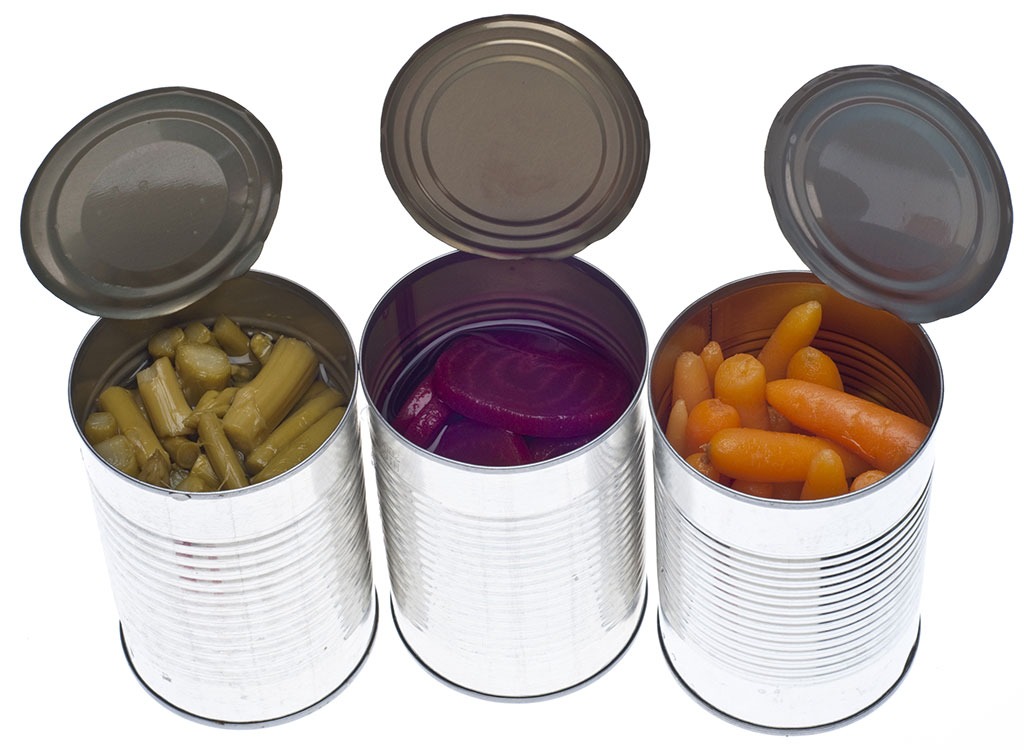
Step away from the canned veggies. It's a trap! While we generally promote a diet that's rich in vegetables for their heart-healthy nutrients and low calorie counts, you're better off buying them fresh or frozen. Otherwise, you'll risk upping your sodium intake with the super salty preservatives and sauces packed into each can of veggies. There are almost 400 milligrams in just a half cup of Del Monte's green beans. If you can't find any with "no salt added" labels, at least give the sodium-soaked stuff a thorough rinsing before allowing it into your body.
Fried Chicken
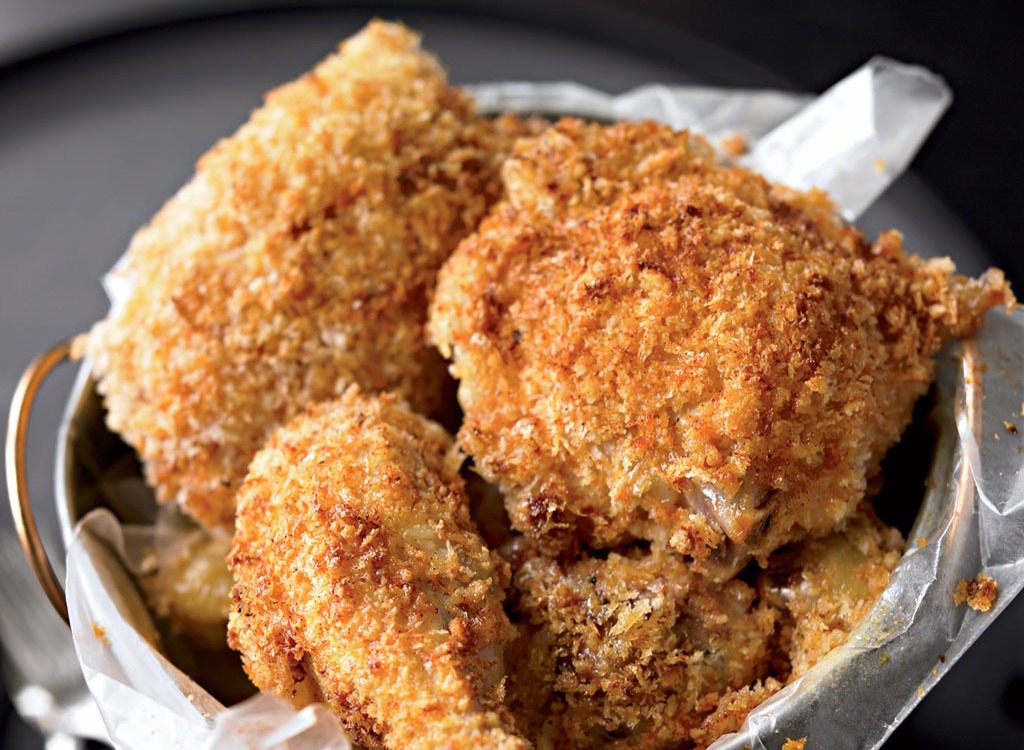
This one's obvious. It's no secret that fried chicken is far from the key to a heart-healthy diet. Because while we recommend grilled chicken as a healthy source of protein, we've got no love for its fried counterpart. A study in Nutrition, Metabolism, and Cardiovascular Diseases found consuming fried foods four times a week increases your obesity risk, which isn't a surprise at all. We're speaking from the heart when we say you should trash the stuff.
Diet Soda
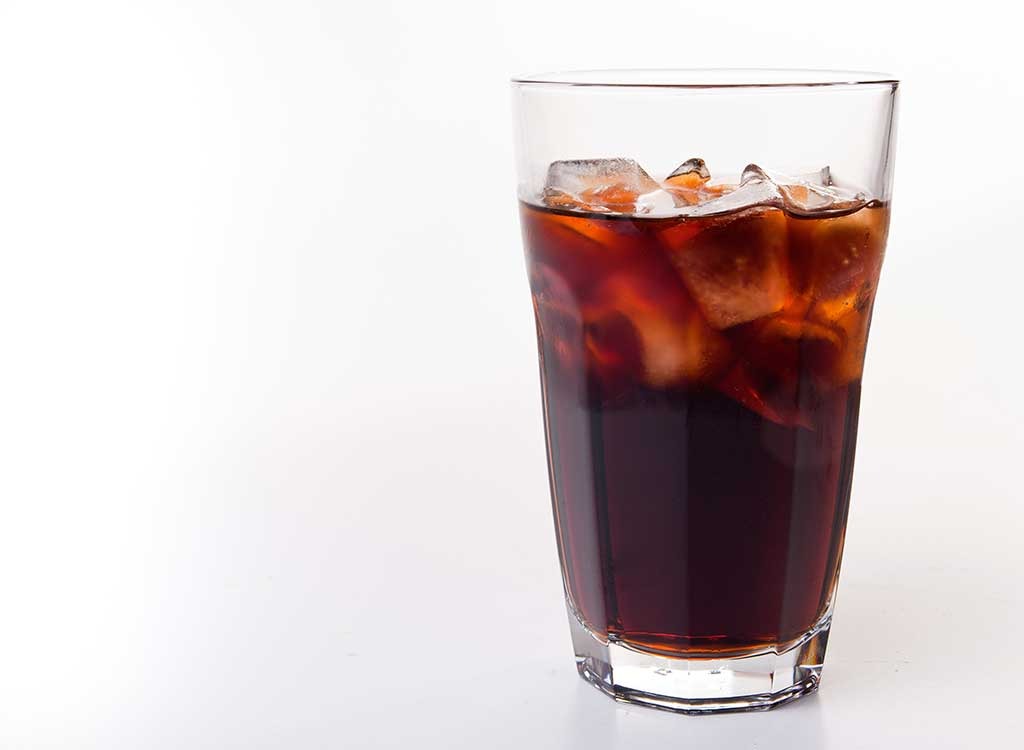
According to researchers from Sponge Loma Linda University, drinking at least five cups of water a day can cut your heart disease risk by up to 60 percent, so why would you turn to any other beverage when you're thirsty? Especially if your go-to drink is diet soda. Regular consumption of the artificial sweeteners in these carbonated cans is associated with weight gain and cardiometabolic risk, according to a meta analysis in the Canadian Medical Association Journal. Leave those in the dust and curb your cravings with any of these 12 Sodas That Are Actually Healthy.
White Rice
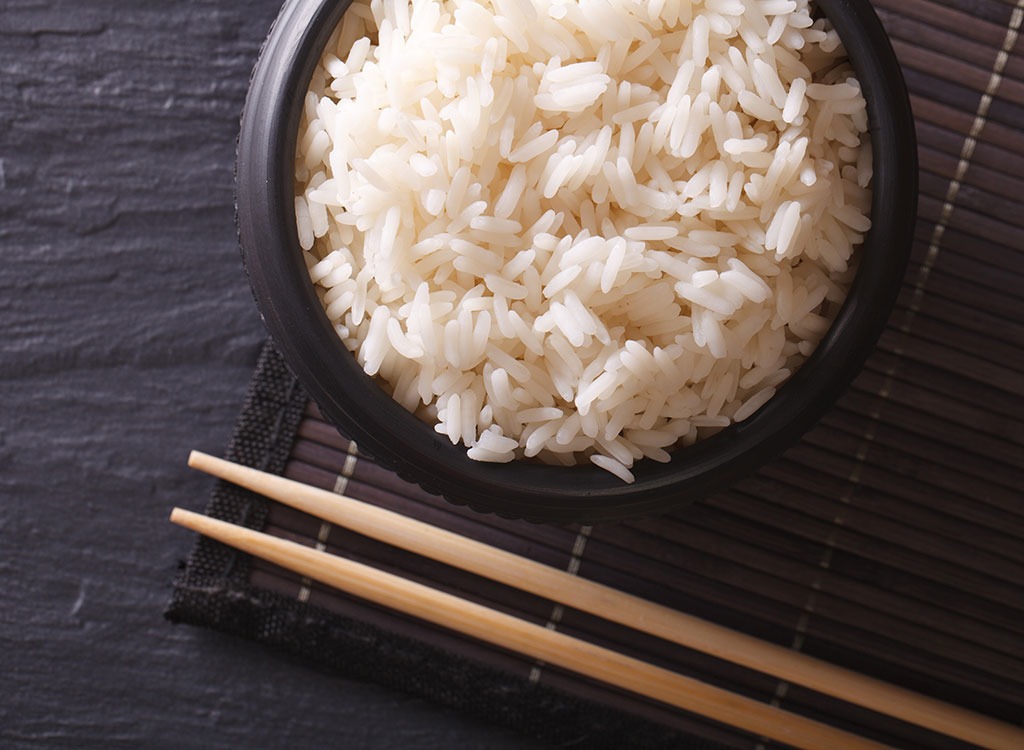
Whole grain or no grain at all. A study in the Archives of Internal Medicine found that women eating white rice were twice as likely to develop heart disease than women who didn't. So stick to the good stuff if you want to do right by your heart.
Fruit Juice
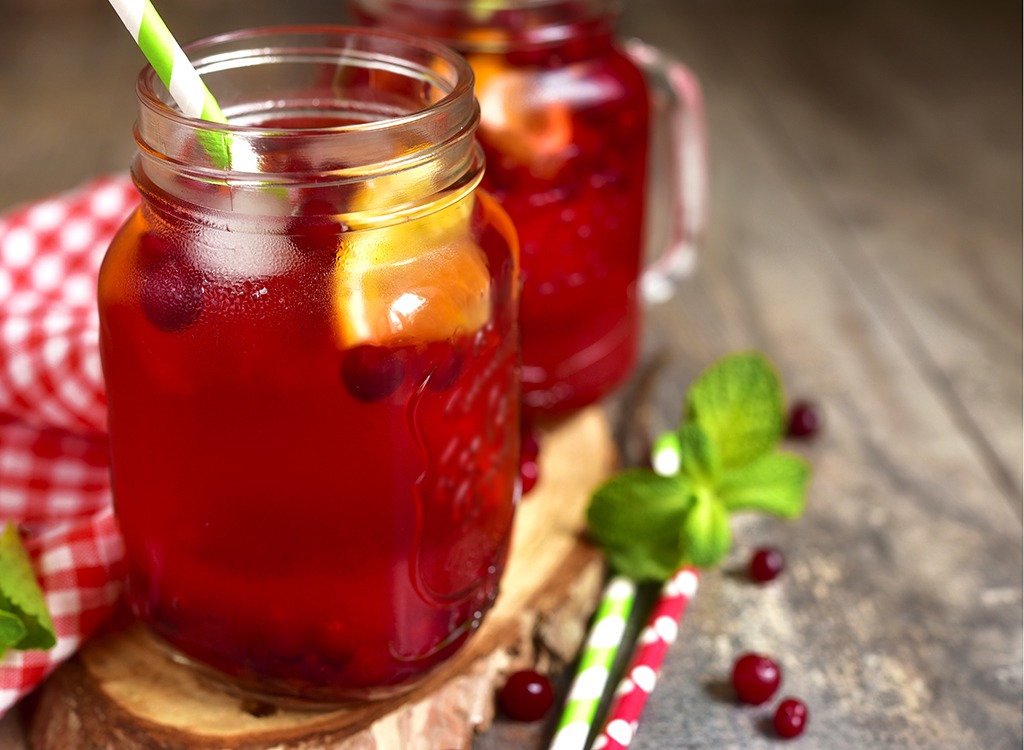
To know fruit juice is to love it, but that doesn't necessarily mean that you should. Just because you're taking in vitamins and minerals, those come hand-in-hand with way more sugar than your heart can handle."Fruit juices are basically sugar and should be avoided," says Adam Splaver, MD, clinical cardiologist and co-founder of NanoHealth Associates. One cup of orange juice, for example, packs more than 20 grams of the sweet stuff.
Processed Red Meat
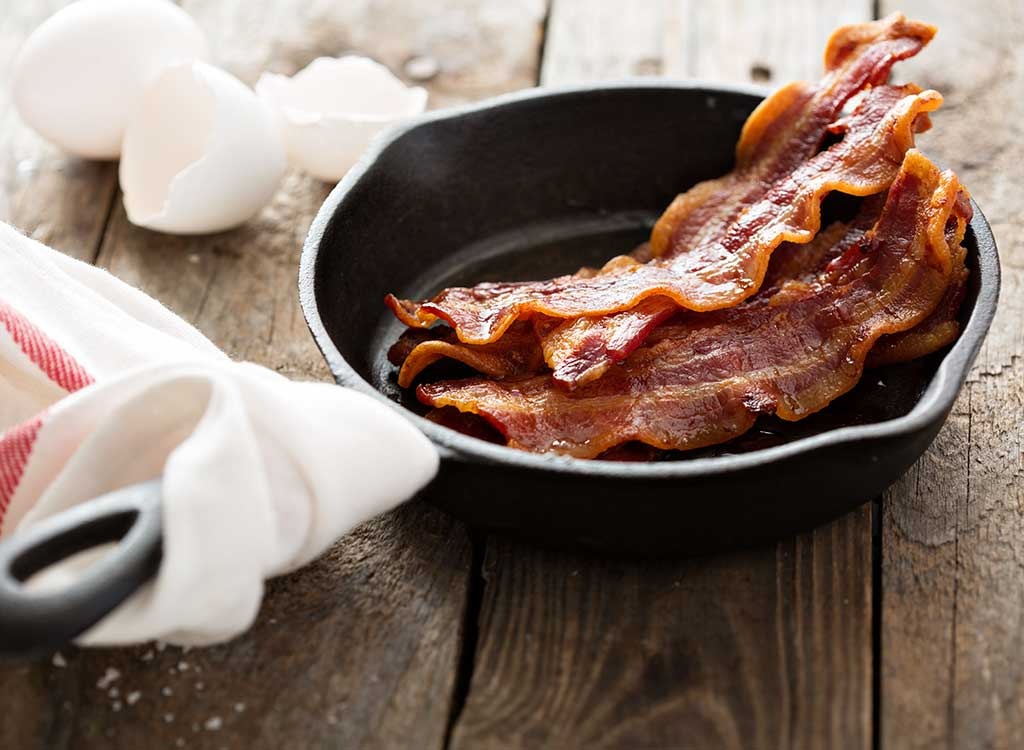
Another grocery list staple you need to start limiting your intake on is processed red meat. A study in The American Journal of Clinical Nutrition found that these are linked to a higher risk of type-2 diabetes. Toss some ground turkey in your cart instead, and you'll hardly notice the difference when Taco Tuesday rolls around.
Canned Soup
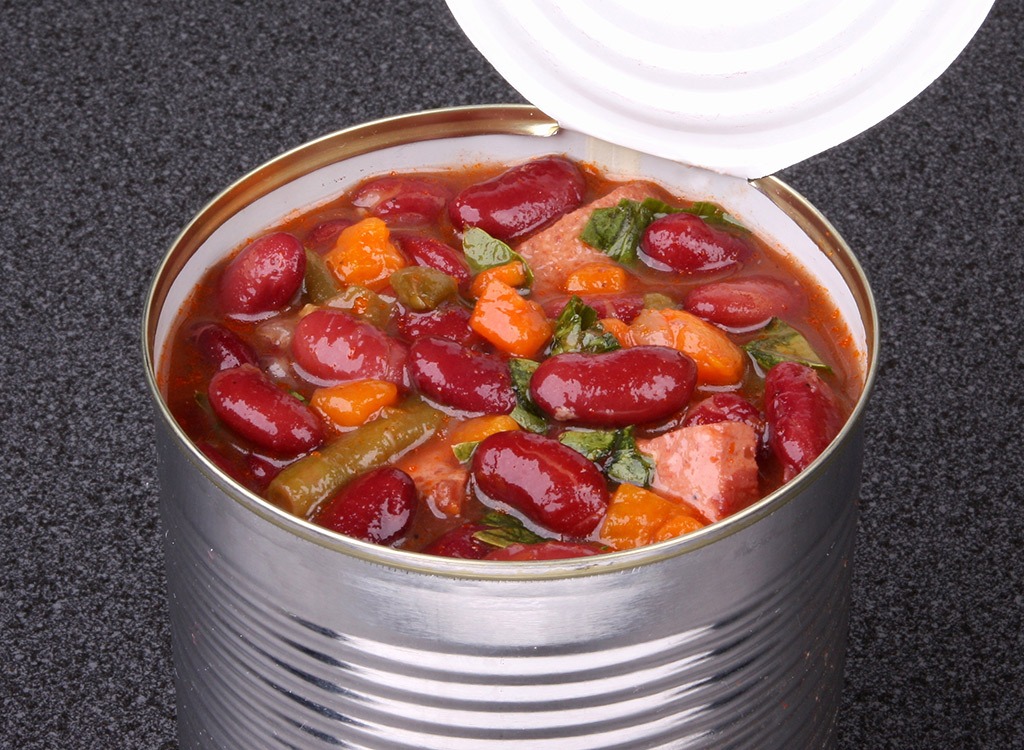
Want to knock out half a recommended daily dose of sodium in one sitting? All you have to do is drink one cup of Campbell's condensed chicken broth. It's not unusual for canned soup like this to be sneaking so much sodium by you, so keep these out of your kitchen. A study in Circulation linked lower sodium intake to lower risk of cardiovascular disease, so limit your consumption whenever possible.
Frozen Foods
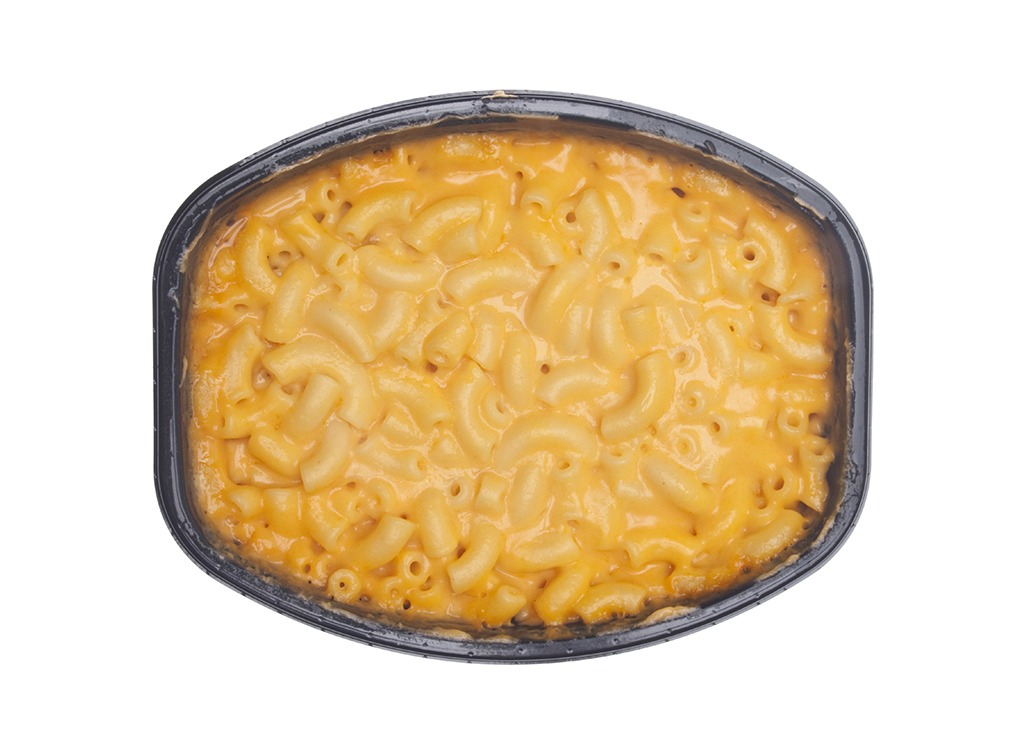
Only opt for a microwaveable meal as a last resort. We understand sometimes there aren't enough hours in the day to whip something up in the kitchen, but some frozen meal entrees are hiding over half a day's worth of sodium (looking at you: Hungry Man Meatloaf), not to mention levels of fat that are disastrous to your diet and your heart. Regularly consuming meals like this can lead to weight gain, ultimately putting a strain on your heart.
Pizza
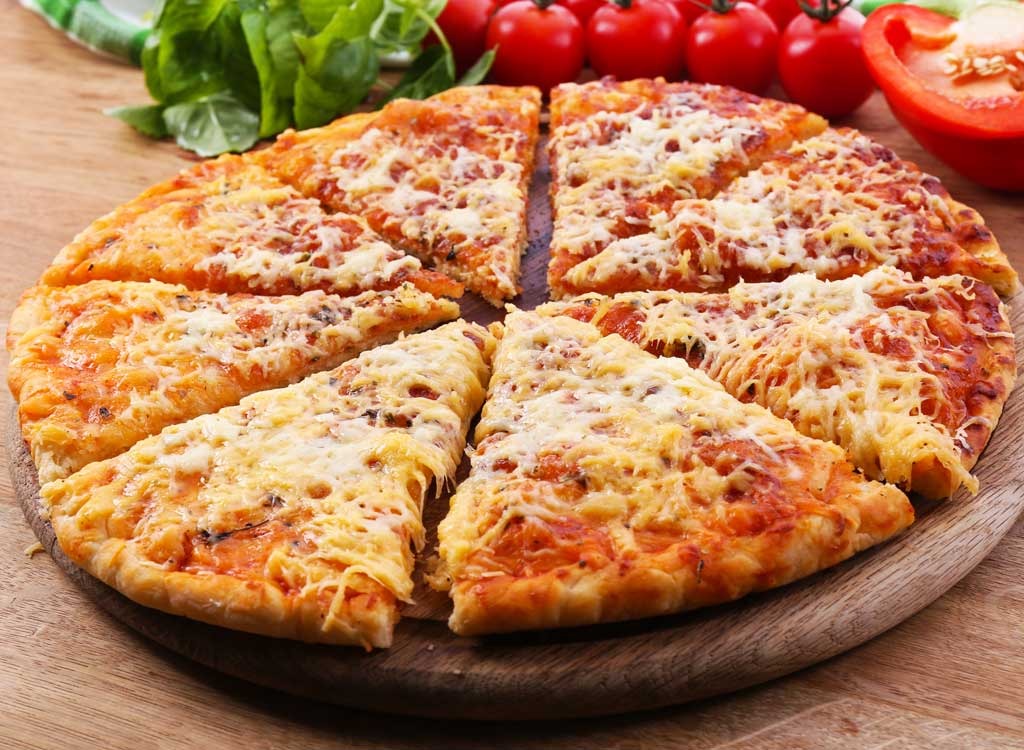
As much as it hurts, you've got to push pizza out of your diet once and for all. According to the National Cancer Institute, it's the #2 source of saturated fat in the American diet behind cheese. Numerous studies have linked this type of fat to heart disease, so when the Harvard School of Public Health looked into it, they weren't surprised to find the same results. Some things—like a pepperoni slice and a healthy heart—just don't go together.
Flavored Instant Oatmeal
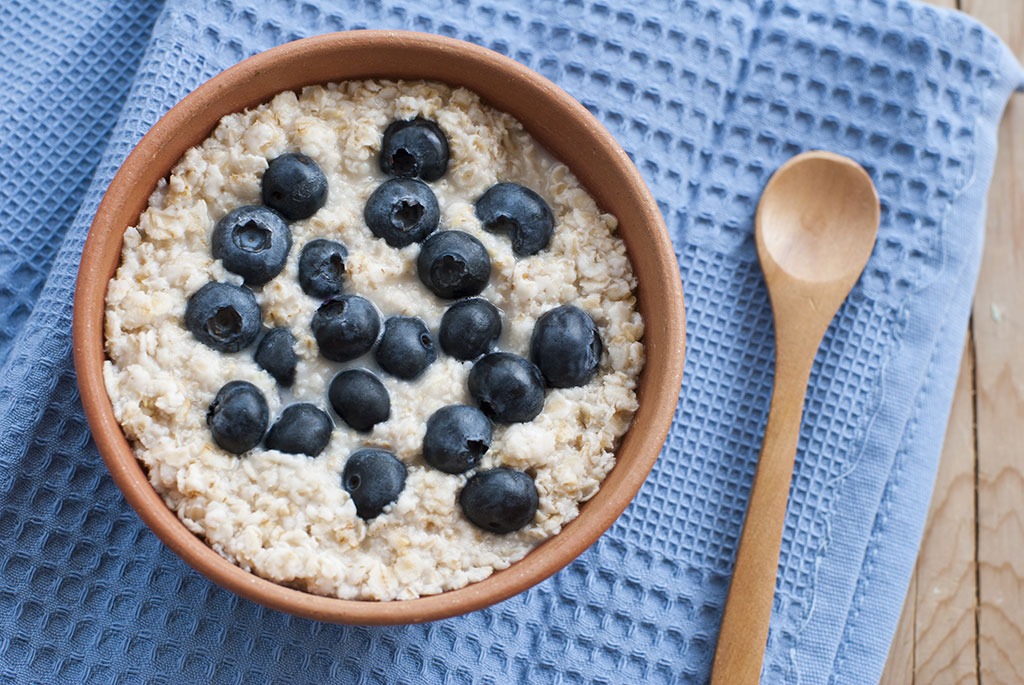
While we stand proudly behind these 50 Overnight Oats Recipes for Weight Loss, so many instant oatmeal packets don't fit the bill. Instead of just featuring oats, these pack on excess ingredients that we aren't fans of. A fruit and cream option from Quaker, for example, contains corn syrup and added sugars. According to Eugenia Gianos, MD, cardiologist, Co-Clinical Director, Center for the Prevention of Cardiovascular Disease at NYU Langone Medical Center, you should banish bad stuff like this. And look out for packets sneaking trans fat by you, as well. "Often listed as hydrogenated or partially hydrogenated oils, synthetically engineered trans-fats increase your bad (LDL) cholesterol levels and decrease your good (HDL) cholesterol levels, upping your risk of heart attack and stroke," Gianos explains.
Coffee Creamer
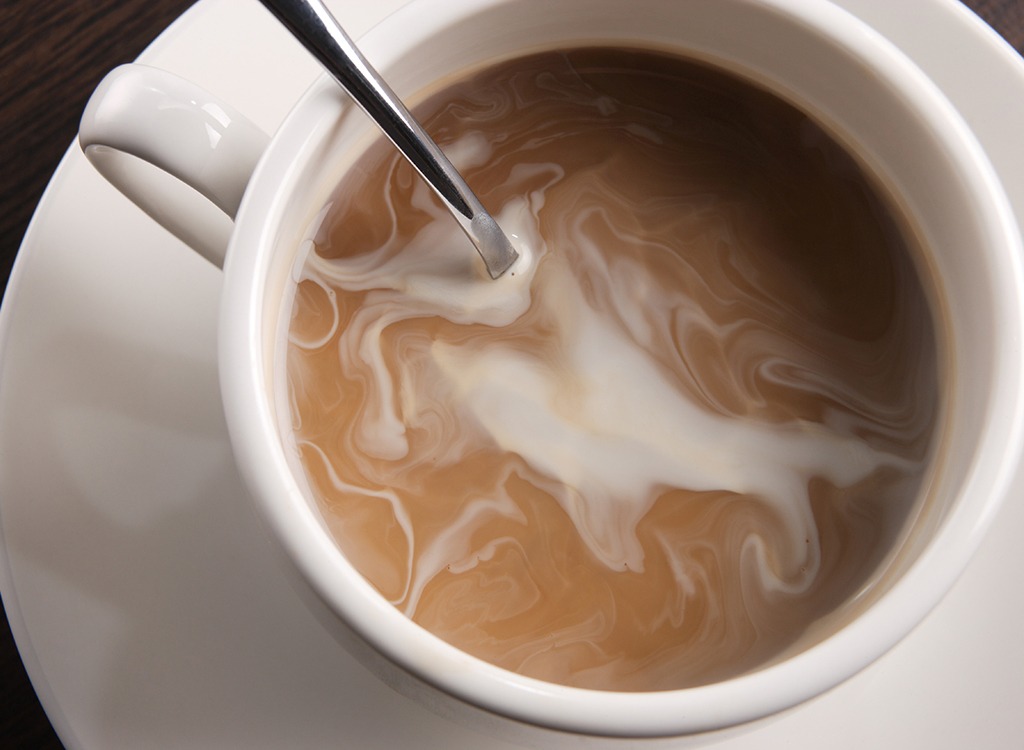
If you think you're doing a good job of avoiding trans-fat laden foods because you save culprits like Chips Ahoy! Cookies for special occasions, think again. Depending on your creamer, you might be gulping down trans fat every single day without even realizing it. Look out for ingredient lists that include hydrogenated oils, which can sneak FDA-banned trans fats right by you. These aren't only inflammatory, but also have been linked to heart disease. According to Splaver, that's because hydrogenated shortenings like the ones found in your daily dose of Coffeemate could be raising your bad cholesterol levels. Sounds like it's time to trash the creamer and splash a little whole milk into your morning cup of joe instead.
Buy Like There's No Tomorrow

There's more to a healthy heart than just staying away from the bad stuff. Do yourself a favor and cram your cupboards with foods your heart loves.
Flax Seeds
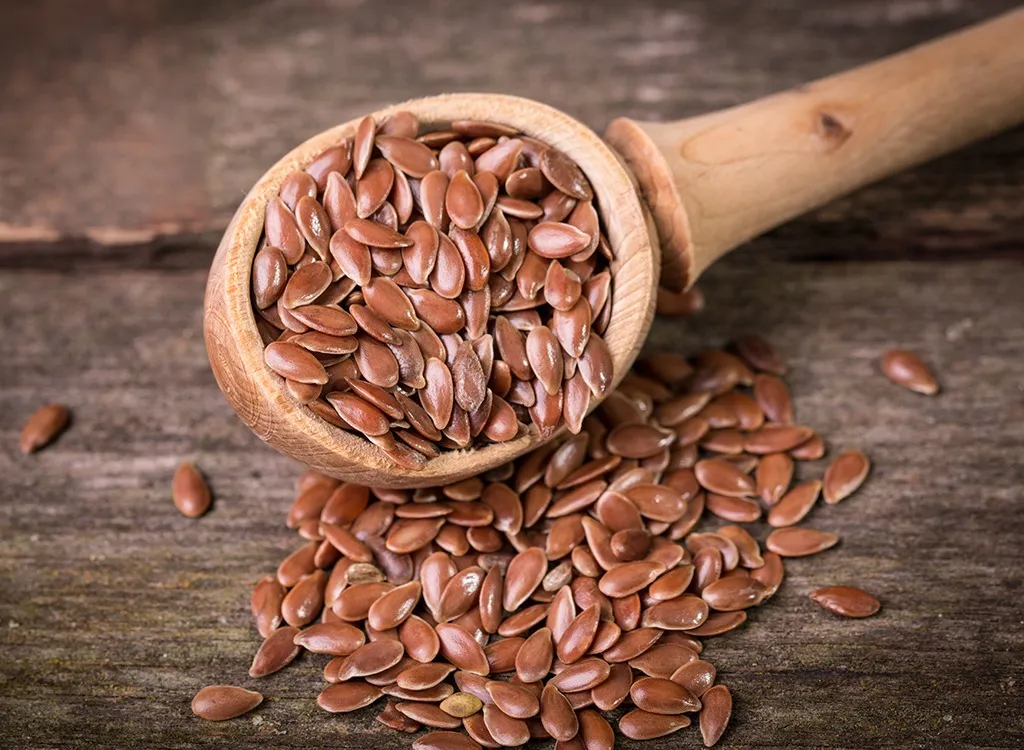
If you're not already spooning flax seeds into your oatmeal and smoothies, we'll cut you some slack. It isn't quite a grocery list staple, but it is more important than you'd think in terms of heart disease prevention. Researchers from the University of Leeds found that your risk of heart disease dramatically decreases for every 7 grams of fiber you eat. Good thing these small seeds pack a punch with 3 grams of diabetes-fighting fiber in each tablespoon. At only 55 calories and full of inflammation-reducing omega-3 fats, you can feel great about incorporating these into your daily diet.
Dark Chocolate

It's okay to give into your sweet tooth once in awhile, or even more often than that if you're craving dark chocolate that contains more than 60 percent cacao. Thanks to its anti-inflammatory flavonols, a study in Circulation Heart Failure found that women had a 32 percent lower risk of developing heart failure if they ate one or two servings of high-quality chocolate every week, compared to those who didn't. Check out The 17 Best And Worst Dark Chocolates to make sure you're doing right by your heart.
Boiled Peanuts
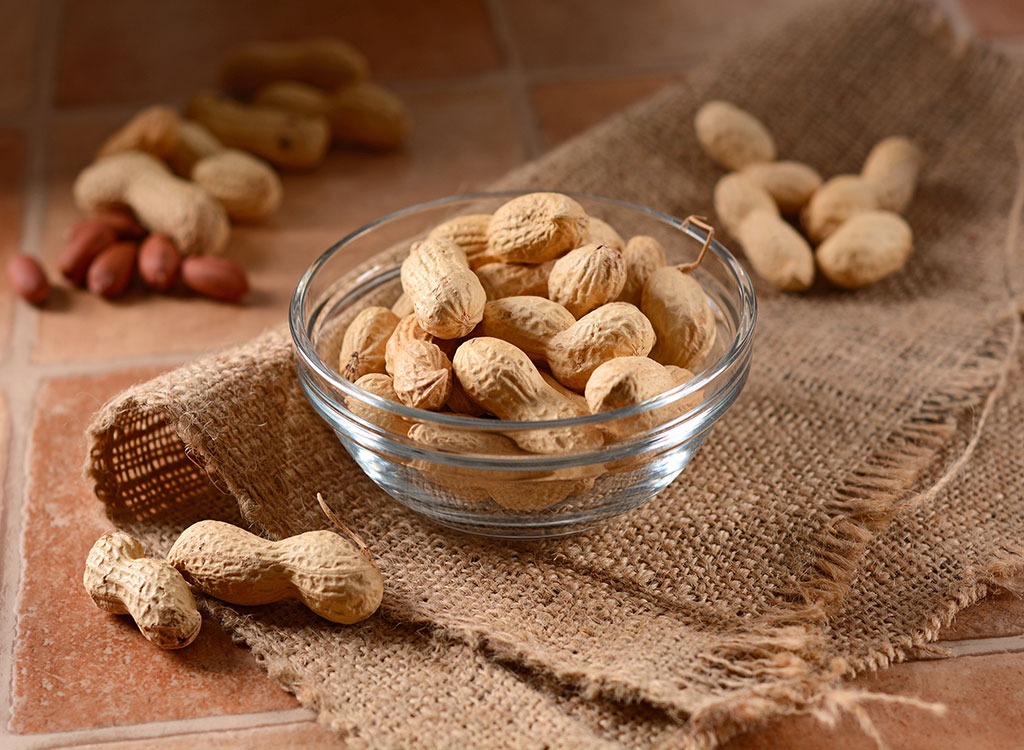
In this case, it's not what's on the inside that counts, but what's on the outside. Peanut shells are home to resveratrol, a heart-healthy phytonutrient, so if you boil your nuts, you'll consume five times as much of the stuff. Eating them raw or dry-roasted won't pass along any of the shell's benefits, but could still be a nutritious option. "Nuts are a great source of fiber and healthy fat, which can help fight inflammation in the body," says Isabel Smith, MS, RD, CDN, and founder of Isabel Smith Nutrition.
Edamame
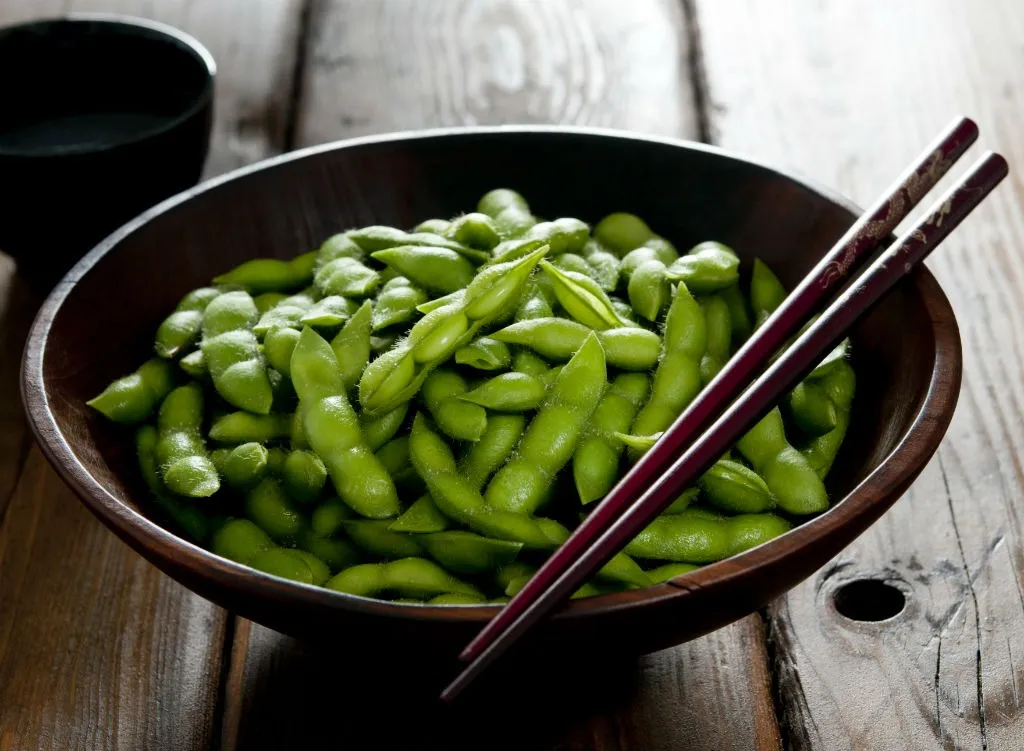
Magnesium, folate, and potassium are some seriously heart-healthy nutrients that help to lower blood pressure, but where can you find them? Start snacking on edamame for starters and get an excellent dose of all three. These pods are also full of fiber, which helps the body produce LDL receptors that pull bad cholesterol from your blood. Sounds like a win-win to us.
Greek Yogurt
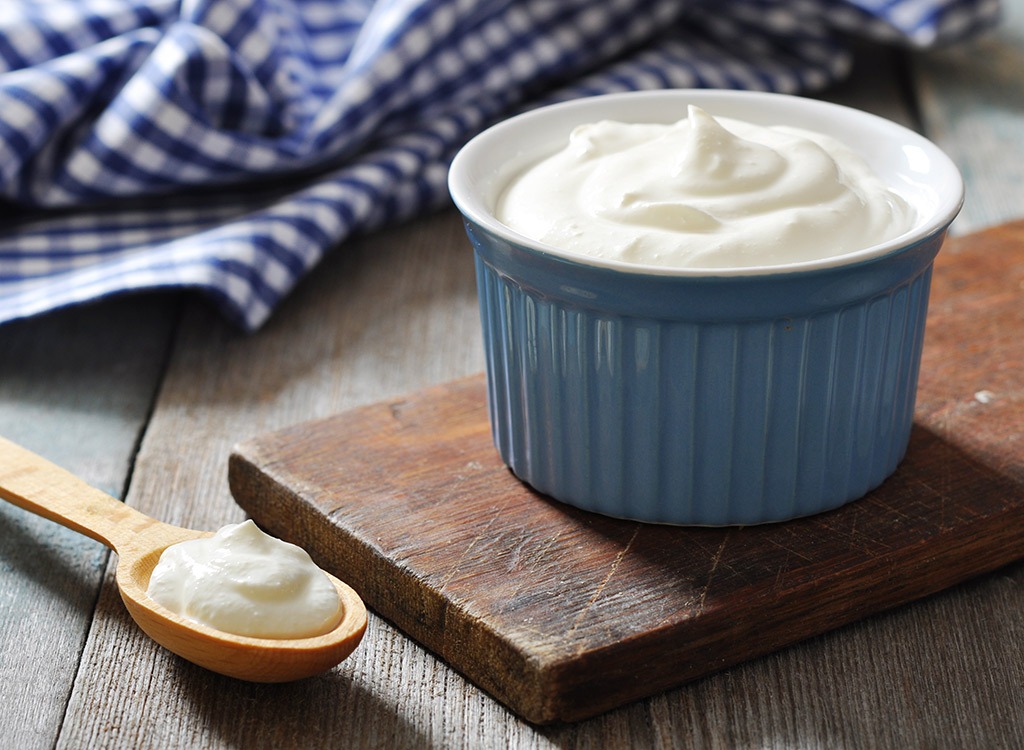
Take heart—just because you need to cross the flavored stuff off of your grocery list doesn't mean you need to ditch yogurt altogether. In fact, spooning out the Greek variety can make all the difference in preventing cardiovascular diseases. According to a study in the American Journal of Clinical Nutrition, women who ate 100 grams every day had much less plaque build-up on their carotid artery walls than those who didn't, even when the researchers accounted for other risk factors like BMI, smoking, and calorie intake. That means all it may take is slightly less than half a cup to help out your heart.
Walnuts
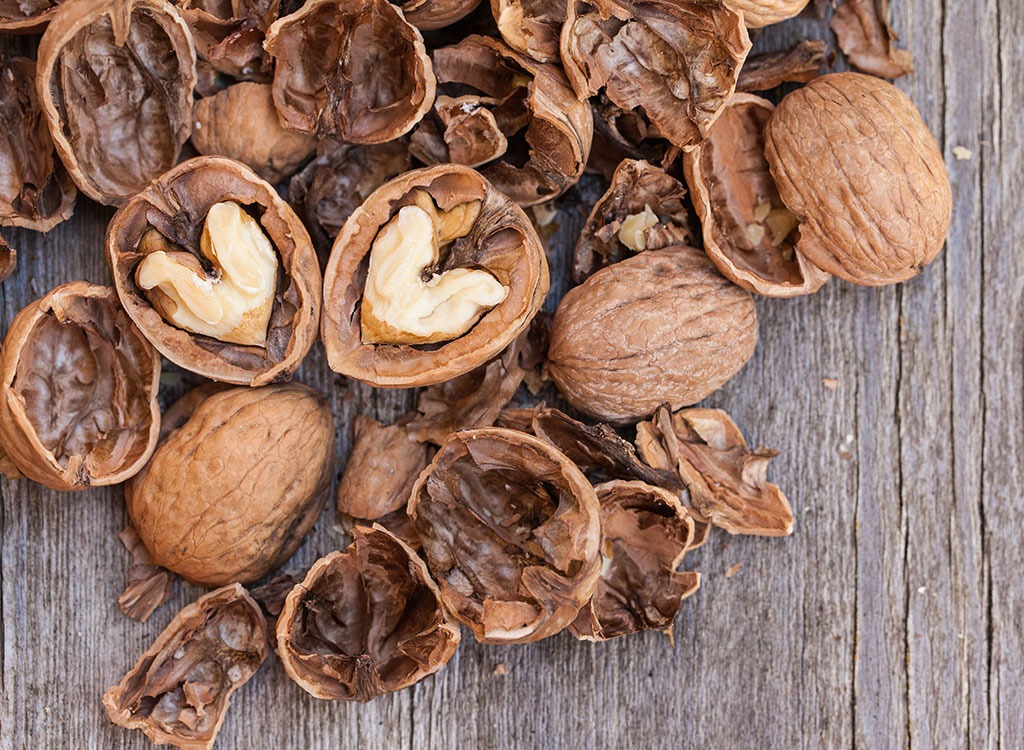
Want a quick way to slash your heart disease risk by nearly 30 percent? Munch on a handful of nuts. Seriously, that's all you have to do, according to a study published in BioMed Central. We recommend walnuts, which are full of the omega-3 fatty acids your heart loves.
Rooibos Tea
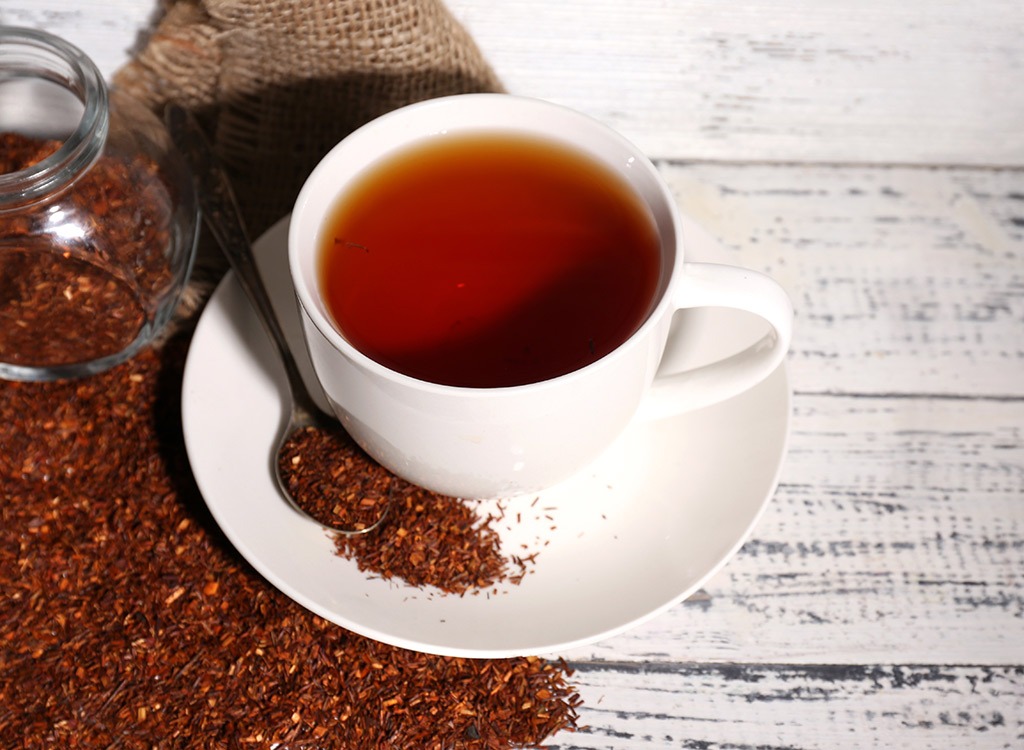
Helping out your heart can be as easy as sipping some tea. Rooibos tea, in particular, doesn't just soothe your mind with its stress-reducing flavonoid Aspalathin, but it works wonders for your body as well. Penn State researchers found that increased levels of stress can lead to increased levels of inflammation, which is tied to obesity and diabetes. So kill two birds with one stone by heating up a mug of rooibos tea next time you're feeling anxious.
Sweet Potatoes

Keep your calories from being converted into fat by scarfing down some sweet potatoes. Not only are these veggies rich in fiber, which has been shown to lower heart disease risk, but they are full of carotenoids. These antioxidants can help stabilize your blood sugar and lower your insulin resistance, which means reducing your odds of developing diabetes. Reaping the benefits is easy because sweet potatoes are so versatile. Pop them in the toaster for breakfast, cut them over your salad for lunch, or load them up with veggies for dinner.
But just because you've mastered these do's and don'ts doesn't mean you can let your guard down. Even the healthiest-looking menu items can sneak quadruple-digit sodium and triple-digit fat right by you and straight to your heart. Read up on the The 35 Worst Restaurant Meals For Your Heart to prepare yourself.

